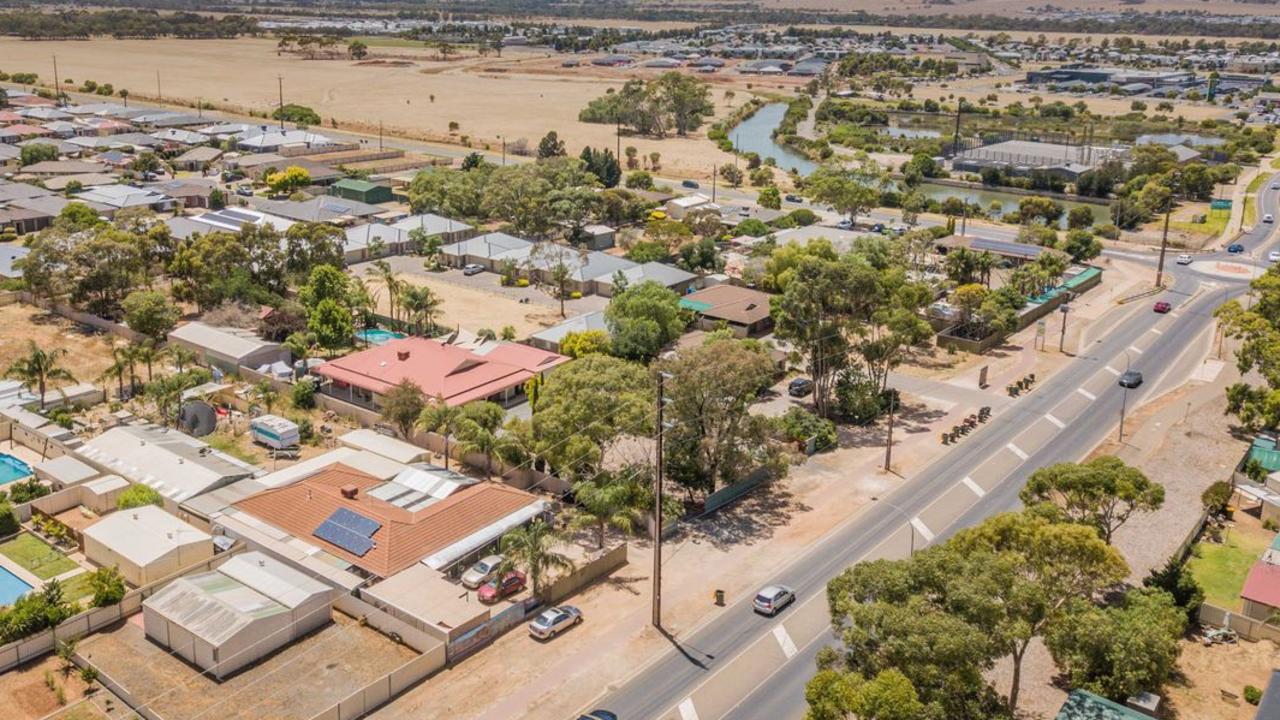Merger of University of South Australia and University of Adelaide to go ahead
A political deal will enable the historic merger of UniSA and the University of Adelaide to go ahead.
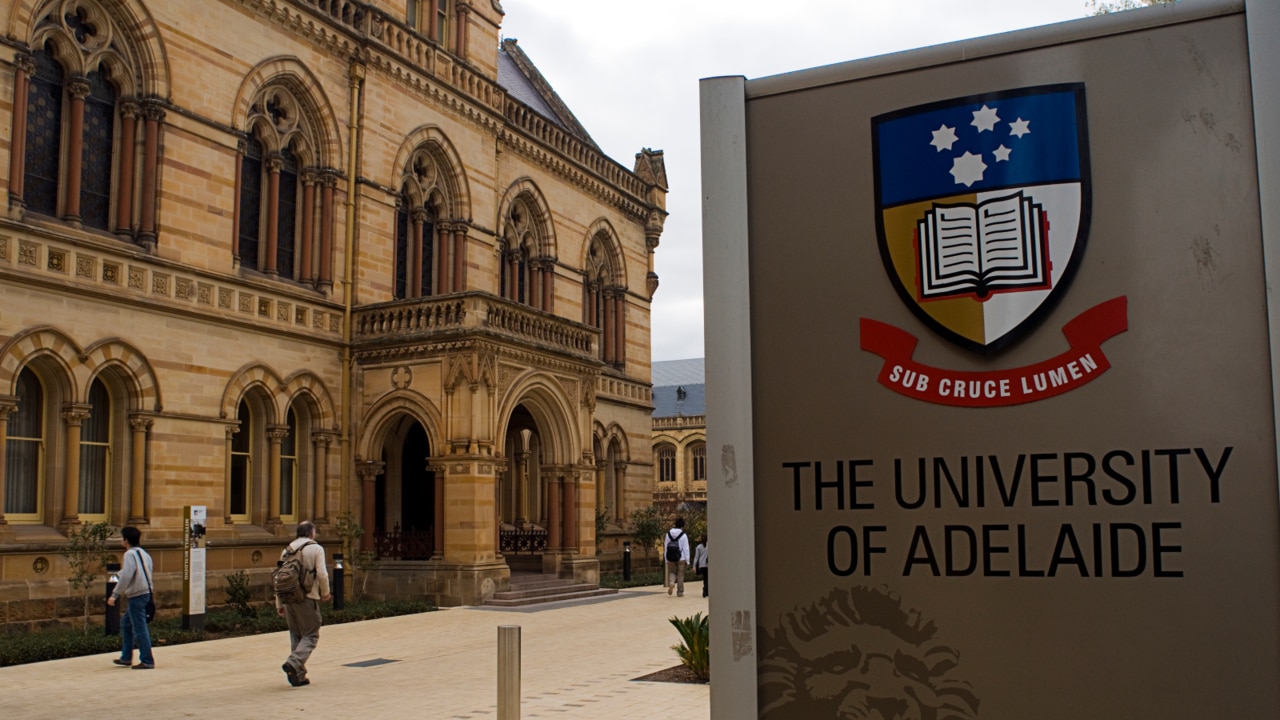
SA News
Don't miss out on the headlines from SA News. Followed categories will be added to My News.
The much-vaunted merger of the universities of Adelaide and South Australia will go ahead because the state government has secured crucial upper house support.
Premier Peter Malinauskas announced crossbenchers Sarah Game and Connie Bonaros will back legislation, to be introduced to parliament tomorrow.
The move follows backing from a key parliamentary committee on Tuesday, which said the merger would advance the state’s economic and social interests.
As part of the deal to gain the support of Ms Game and Ms Bonaros, the government indicated it would support the recommendations of the committee.
That includes $40m more funding for Flinders University and an extra $20m for a student support fund for the new university.
SA-Best MLC Ms Bonaros, who was a member of the committee, said the extra funding will help students from regional areas and low socioeconomic backgrounds attend university.
“For me, it crystallised my support for this merger. I’m exceptionally, exceptionally pleased with that outcome,” she said.
“And I have to agree. This is a transformative move for South Australia. It is a historic move for South Australia. And I absolutely believe that it will have the potential to make a difference to students lives across the board, who would not otherwise have this opportunity.”

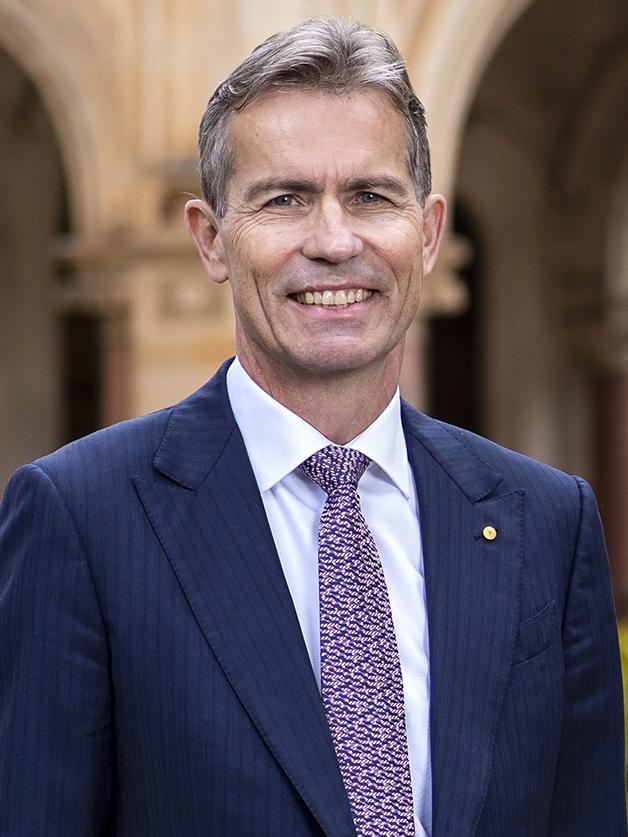
One Nation MLC Ms Game said she was supporting the merger because of its broad benefit to South Australia.
“We’re in a cost-of-living crisis and not everyone wants to go to university,” she said.
“And so, for me, it was essential to understand that interplay between this university and improving the economic prosperity of this state and lifting wages. And that absolutely has happened.”
Premier Peter Malinauskas thanked the two crossbenchers for their support.
“Yesterday, I announced the state’s biggest ever investment in TAFE and skills, and today, we press ahead with legislating a new university that has the potential to contribute half a billion dollars to our economy each year and deliver better opportunities for students of all backgrounds,” he said.
“That potential benefit sits starkly against the risk of doing nothing, and watching our high quality, but small universities, get swamped by international competitors.”
However, opposition education spokesman John Gardner said the new funding arrangement, as it stands, would put Flinders University at a disadvantage because state government investment would generate $20m per year for the new Adelaide University.
“The potential benefits of this proposal require the whole sector to be taken into account,” he said.
“Adelaide University will be set up with sufficient funds to guarantee it can purchase enough researchers to keep it in the top 100, which means it can pitch for those international students who are willing to pay the premium.”
Mr Gardner said Flinders has experienced a rapid improvement in research, funding and rankings in recent times, and is on track to be a top 10 university in Australia.
“That means that it will be best placed to catch your international students who aren't’ looking for the top 100 and aren’t willing to pay that premium,” he said.
“But it can only do that if it maintains its research performance too, and to have it disadvantaged by a deal that excludes it from state funding means that South Australian taxpayers would, in this circumstance, be paying for one of our universities to be at a disadvantage to the other.”
Greens education spokesman Robert Simms slammed the deal, which he said was premature.
“It’s profoundly disappointing to see Connie Bonaros giving the government a blank cheque on this bill when amendments haven’t even been filed,” he said.
“The Upper House has a responsibility to act as a house of review, not simply a rubber stamp for the government of the day.”
Mr Simms said the “dud deal” negotiated by One Nation and Ms Bonaros also represented a missed opportunity.
“Any new university could have led the nation with modern governance arrangements, protections for workers and more input from staff and students into its decision making,” he said.
Deputy Premier Susan Close on Wednesday indicated more funding for Flinders University was likely to be among key government concessions to enable the merger.
The committee recommended risk management measures including early appointment of a new Vice-Chancellor to ensure a “sustained and single-minded focus” on the objectives of the merger.
Its report, tabled Tuesday, also suggested more oversight, legislative and administrative measures with respect to the proposed merger between the University of Adelaide and University of South Australia.
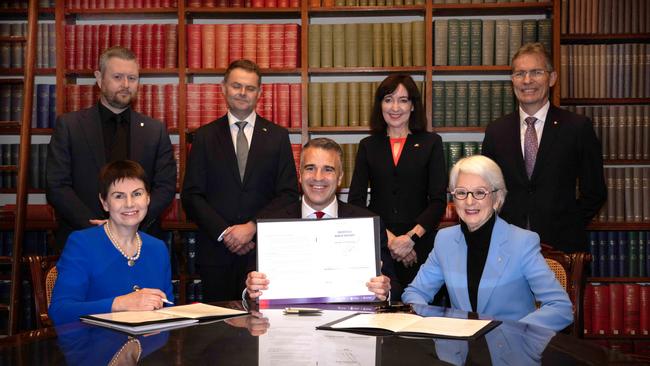
It said public consultation should begin as soon as possible on whether university-owned land at Magill and Mawson Lakes should be used, developed or sold.
In response, the Liberals demanded more support for Flinders, community access to the Magill land and new regional services, all of which Deputy Premier Susan Close indicated the state government would consider.
“Certainly for regional students – we’ll be making sure that’s in the Bill that we’ll table later in the week,” Dr Close told The Advertiser.
“ … On the subject of Flinders, it’s important to note that the government is aware that, while we are keen to see a merger between two of the three universities, we’re responsible for the whole sector and that means making sure that Flinders remains a really strong part of the university sector in South Australia.”
Dr Close said Flinders funding and Magill land access were “perfectly reasonable propositions” that would be considered but neither appeared in the government Bill, so “therefore should not prevent the Liberals from supporting this important reform”.
The report also said work should start “immediately on the identification of possible additional investments required for the proposed Adelaide University to meet its commitments to tertiary education in regional South Australia”.
Committee chairman Dan Cregan said: “Global competition between universities remains fierce.
“The committee found that on the balance of all evidence presented, the state’s interests would likely be advanced by an amalgamation.
“Importantly, this process is not without risks, which need to be carefully managed.”
The government will need the support of the Opposition or crossbench to pass merger legislation through the upper house.
Ms Game on Tuesday said she had been concerned with merger costs and where the money would come from.
In a statement supplied by her office to The Advertiser, she said it was important to be able to explain to her constituents the potential economic benefits of the merger and any risks.
“South Australians are experiencing a cost-of-living crisis and there are many other areas for the government to invest in,” the statement says.
“Ms Game has focused throughout the committee process on the business case, including how much the long-term costs of the merger are likely to be, and why the state needs to take this risk now.
“Of equal importance has been understanding the impact on teaching outcomes, particularly the tangible benefits for staff, students, and university culture.”
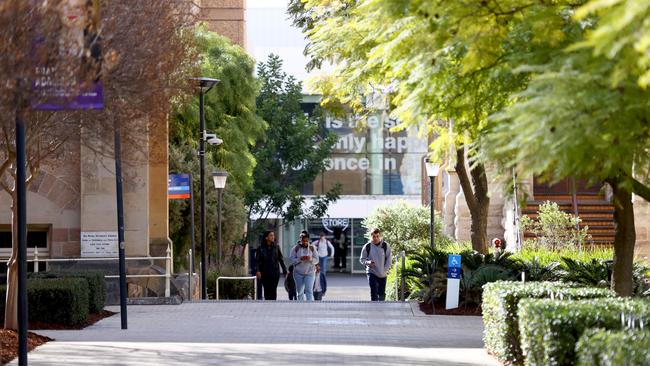
On Tuesday, SA Best MLC Frank Pangallo said he was firmly sitting on the fence and intended to consult widely before deciding his vote.
Also on Tuesday, Ms Bonaros said: “I will keep working on the merger process as I have been for the past 2 ½ months. All options are on the table.”
The committee delivered seven recommendations and two minority reports – one from Mr Gardner and fellow Liberals MP Jing Lee and a second from Mr Simms.
Mr Gardner said the Opposition supported “some but not all” of the committee’s findings and recommendations.
He said the Liberals wanted “equivalent scholarship and research support” for Flinders University being provided to the new Adelaide University, community access to land at
UniSA’s Magill campus earmarked for sale and new commitments about regional services.
“The Malinauskas Labor Government failed to undertake adequate policy analysis on the proposal and the committee found significant risks associated with the proposal and recommended a range of mitigation strategies,” he said.
“If the Liberal Party is to support the proposal, Peter Malinauskas must accept these recommendations from the committee, and also the recommendations in the Liberal Party’s minority report.”
Mr Simms used his report to call for governance reforms and urge the government to make public the full business case in relation to the merger.
“Given the significant investment of public money and the key role that universities play in our state, it is only appropriate that the full business case for this merger plan be made public,” he said.
“Additionally, given controversy surrounding the role of consultants in recent months, the universities should disclose the names of any consultants they engaged on this proposal.”
Both university councils backed the merger in July, signing a heads of agreement with the state government, which promised almost $450m.
A feasibility study outlined “compelling” benefits, including forecasts the new Adelaide University would generate an extra $500m annually for the state economy by 2034, create an extra 1200 jobs and educate more than 70,000 students – about 13,000 more than today’s combined total.
Also by 2034, the universities’ feasibility study forecast it would attract 6000 extra international students, generate an extra $100m in research revenue annually and help an extra 800 low socio-economic people into study.
Mr Malinauskas in July revealed a state funding package including $300m to establish two state-owned perpetual funds enshrined in legislation and invested in Funds SA.
One would be a $200m fund to back research at the new university and the other a $100m student support fund to encourage enrolments from low socio-economic groups.
But Mr Malinauskas was criticised for committing the $445.5m after reading only summaries of the business case provided by the universities, which he countered by saying the entire report was the “property of the universities’’ and was their “intellectual property’.
Backing the parliamentary committee inquiry in July, Liberal deputy leader John Gardner argued the government had “botched the process” but said the Opposition was open-minded about the merger.
More Coverage
Originally published as Merger of University of South Australia and University of Adelaide to go ahead



